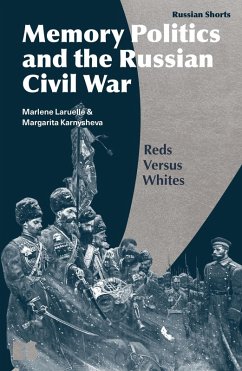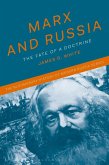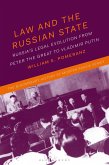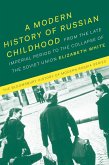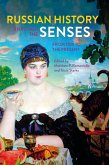In examining the re-emergence of Russia's White Movement, Memory Politics and the Russian Civil War gets to the heart of the rich 20th-century memory debates going on in Putin's Russia today.
The Kremlin has been giving preference to a Soviet-lite nostalgia that denounces the 1917 Bolshevik revolution but celebrates the birth of a powerful Soviet Union able to bring the country to the forefront of the international scene after the victory in World War II. Yet in parallel, another historical narrative has gradually consolidated on the Russian public scene, one that favours the opposite camp, namely the White movement and the pro-tsarist groups defeated in the early 1920s. This book offers the first comprehensive exploration of this 'White Revenge', looking at the different actors who promote a White and pro-Romanov rehabilitation agenda in the political, ideological and cultural arenas and what this historical agenda might mean for Russia, both today and tomorrow.
The Kremlin has been giving preference to a Soviet-lite nostalgia that denounces the 1917 Bolshevik revolution but celebrates the birth of a powerful Soviet Union able to bring the country to the forefront of the international scene after the victory in World War II. Yet in parallel, another historical narrative has gradually consolidated on the Russian public scene, one that favours the opposite camp, namely the White movement and the pro-tsarist groups defeated in the early 1920s. This book offers the first comprehensive exploration of this 'White Revenge', looking at the different actors who promote a White and pro-Romanov rehabilitation agenda in the political, ideological and cultural arenas and what this historical agenda might mean for Russia, both today and tomorrow.

